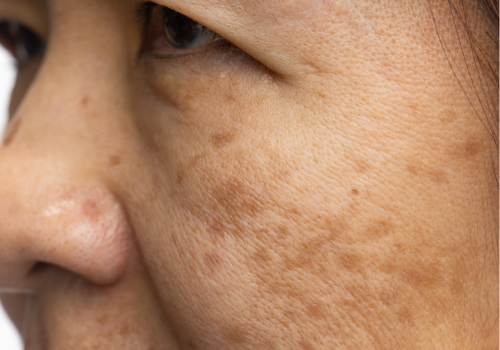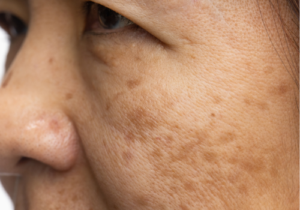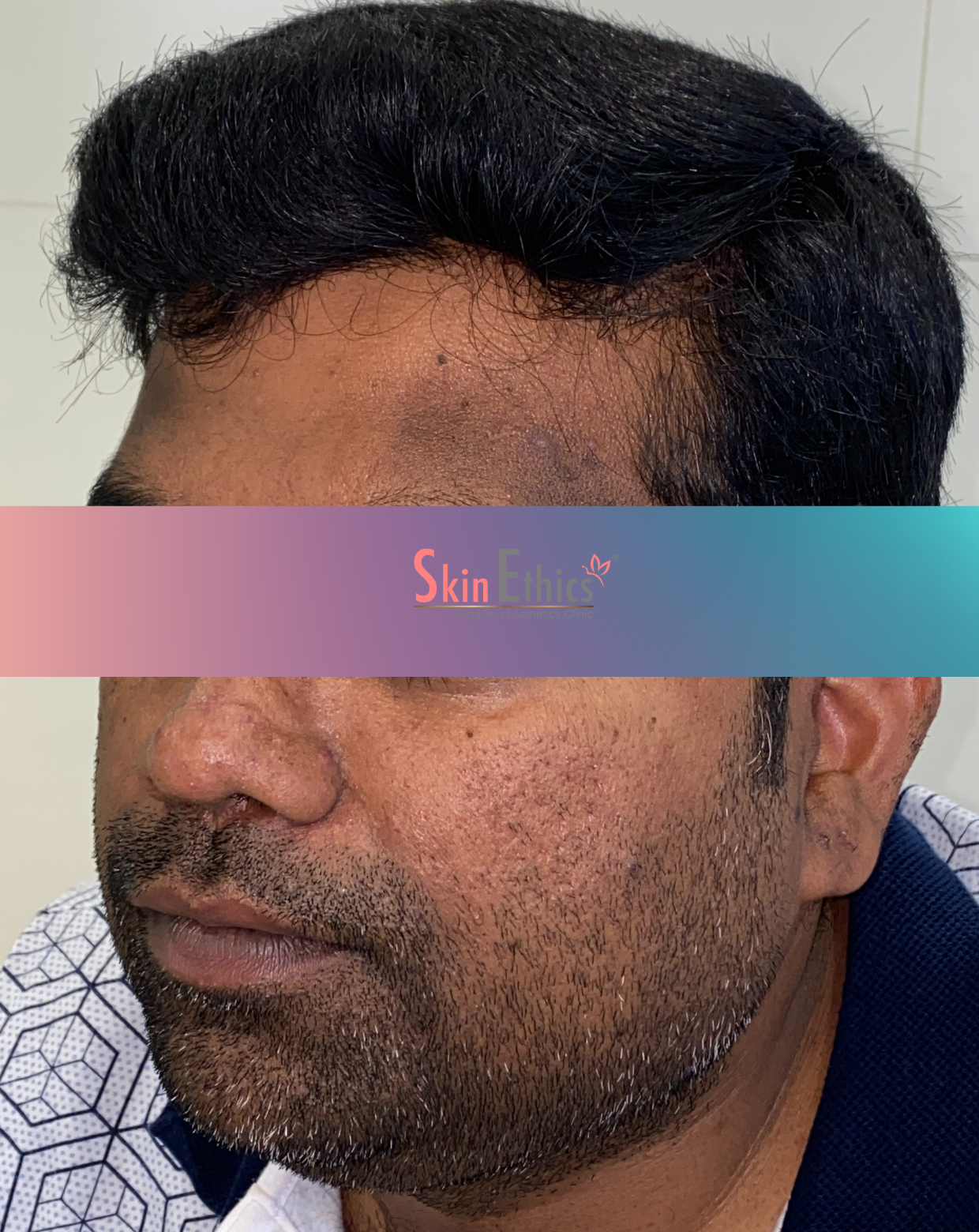

-
by skinethics
Introduction:
As a leading dermatologist at SkinEthics Pune, I believe in empowering our patients with knowledge about various skin conditions and treatments. Today, we will explore the intriguing topic of “skin pigmentation,” a common concern that affects many individuals. Understanding the causes, treatments, and prevention methods can help you make informed decisions about your skin health.
What is Skin Pigmentation?
 Skin pigmentation refers to the color of our skin, which is determined by a pigment called melanin. Melanin is produced by cells called melanocytes and plays a crucial role in protecting our skin from harmful UV radiation. However, an imbalance in melanin production can lead to various pigmentation issues. Skin pigmentation is a complex trait and varies among individuals and ethnic groups. People with darker skin tones typically have higher levels of melanin, which offers some protection against the harmful effects of UV radiation. In contrast, people with lighter skin tones have lower levels of melanin and are more susceptible to sunburn and an increased risk of skin damage from UV exposure.
Skin pigmentation refers to the color of our skin, which is determined by a pigment called melanin. Melanin is produced by cells called melanocytes and plays a crucial role in protecting our skin from harmful UV radiation. However, an imbalance in melanin production can lead to various pigmentation issues. Skin pigmentation is a complex trait and varies among individuals and ethnic groups. People with darker skin tones typically have higher levels of melanin, which offers some protection against the harmful effects of UV radiation. In contrast, people with lighter skin tones have lower levels of melanin and are more susceptible to sunburn and an increased risk of skin damage from UV exposure.
Types of Skin Pigmentation:
- Hyperpigmentation: This occurs when there is an excess of melanin, leading to dark patches or spots on the skin. Common forms of hyperpigmentation include age spots, melasma, and post-inflammatory hyperpigmentation (PIH).
- Hypopigmentation: In contrast, hypopigmentation occurs when there is a reduced melanin production, resulting in lighter patches on the skin.
Causes of Skin Pigmentation:
- Sun Exposure: Prolonged sun exposure is one of the primary causes of hyperpigmentation. UV rays trigger the production of melanin as a defense mechanism, leading to tanning or the formation of sunspots.
- Hormonal Changes: Hormonal fluctuations during pregnancy or while taking oral contraceptives can lead to melasma, a type of hyperpigmentation often referred to as “pregnancy mask.”
- Post-Inflammatory Response: Inflammatory skin conditions like acne, eczema, or psoriasis can cause PIH, where the skin produces excess melanin during the healing process, resulting in dark spots.
- Genetics: Some individuals are genetically predisposed to certain pigmentation issues, making them more susceptible to conditions like vitiligo or freckles.
Treatments for Skin Pigmentation:
- Topical Treatments: Dermatologists often prescribe creams or serums containing ingredients like hydroquinone, retinoids, or vitamin C to lighten dark spots and even out skin tone.
- Chemical Peels: Chemical peels involve the application of a chemical solution to exfoliate the top layer of the skin, reducing hyperpigmentation and promoting skin regeneration.
- Laser Therapy: Laser treatments can target and break down excessive melanin, effectively treating various forms of pigmentation issues.
- Cryotherapy: This treatment involves using liquid nitrogen to freeze and remove dark spots caused by sunspots or age spots.
Prevention of Skin Pigmentation:
- Sun Protection: Wearing broad-spectrum sunscreen with an SPF of at least 30 is essential to protect the skin from harmful UV rays and prevent pigmentation issues.
- Protective Clothing: When outdoors, wear protective clothing, wide-brimmed hats, and sunglasses to shield your skin from the sun.
- Avoid Picking or Squeezing: Refrain from picking or squeezing acne and other skin blemishes, as it can lead to PIH.
- Skincare Routine: Establish a skincare routine that includes gentle cleansing, exfoliation, and the use of products containing antioxidants and skin-brightening ingredients.
- Results:

Conclusion:
Skin pigmentation is a common concern, but with the right knowledge and treatment, it is manageable. At SkinEthics Pune, our team of experienced dermatologists is dedicated to providing you with personalized care and effective solutions for various skin conditions, including pigmentation issues. Remember, early intervention and a proactive approach to skincare can help you maintain a healthy, radiant complexion. To learn more about our skin pigmentation treatments and other services, please visit our Skin Pigmentation Treatment page.
